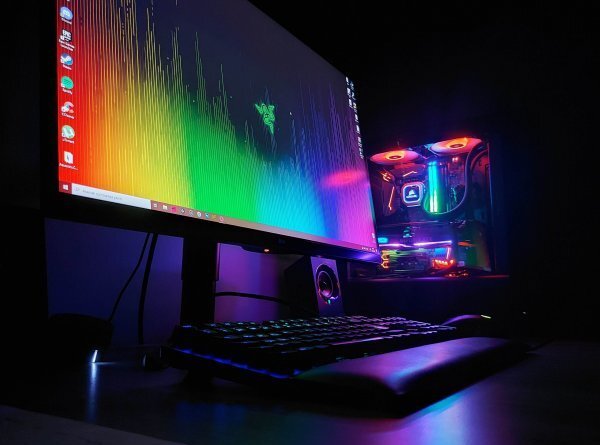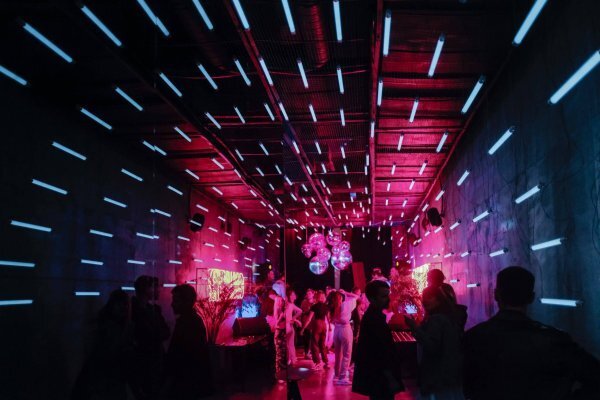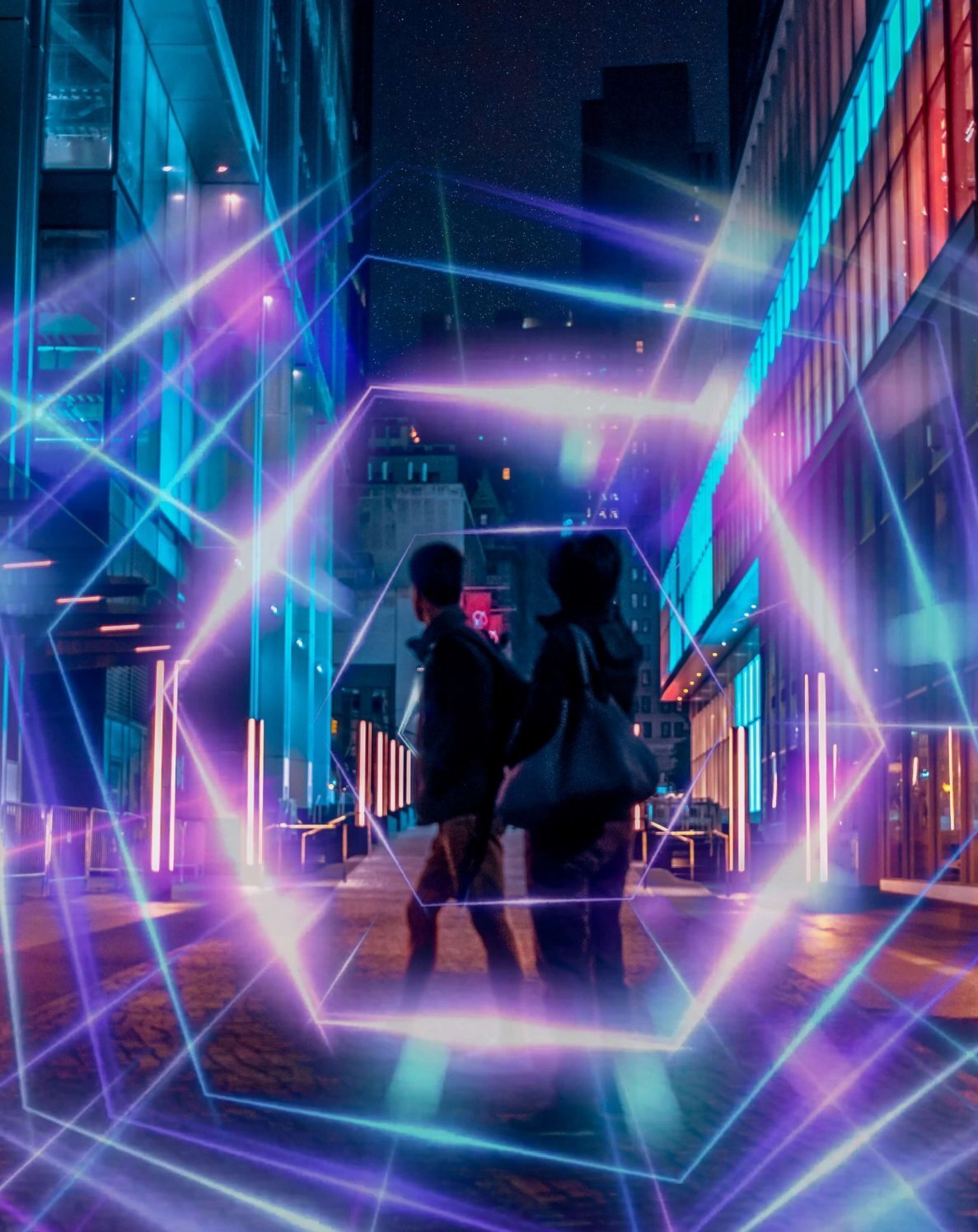Home » Uncategorized » Metaverse: Everything Brands Need to Know in 2022 to Find Success
The metaverse is the next evolution of the internet that brands and investors have been focusing on recently. Sometimes referred to as Web 3.0, the metaverse is the successor to the internet. The goal of the environment is to create an immersive online universe with authentic interactions and innovative experiences.
Background of The Metaverse
The word “metaverse” originated from Neal Stephenson’s 1992 book “Snow Crash”, a science fiction book that describes a virtual-reality-based world. It has recently been a trending concept, especially with the rise of video games and our increased internet use during the COVID-19 pandemic.
Defining the Metaverse
Many companies are rapidly working to define the metaverse and building this new universe. There are many different definitions of the metaverse. However, the most commonly recognized attributes were set by Matthew Ball. This states that the metaverse is:
- Massively scaled
- Interoperable
- Blends the physical and virtual worlds
- Has a functioning economy
- Synchronous
- Persisten
- Available to all users with their own sense of presence
- Has continuous data available
Newsweek had a podcast called Metaverse Marketing, Cathy Hackl, the Chief Metaverse Officer of Futures Intelligence Group. Hackl spoke to some industry leaders about their opinions on the metaverse.
In the podcast, Jonathan Glick, the former Senior Vice President of Product and Technology, defined the metaverse as the following: “On the one hand, the metaverse is a word that we’re all using for the very very long term human aspiration to be able to enter a completely imaginary world. ”
There is also the idea of Tony Parisi’s Seven Rules of the Metaverse:
- There is only one metaverse
- The metaverse is for everybody
- Nobody controls the metaverse
- The metaverse is open
- It is hardware-independent
- It is a network
- The metaverse is the internet
Regardless of the definition, the metaverse is a collaborative community project. This space is growing beyond gaming and into expanding on everyday experiences. This space offers a new economy, new commerce standards, and new job opportunities. It also offers a greater potential for socialization, productivity, shopping, and entertainment.
Technologies for Development
Current Technologies
The metaverse will be a combination of a few vital technologies to create the metaverse:
- Virtual Reality (VR): Virtual reality is a three-dimensional simulated experience that mirrors the physical world. Technologies used for VR are being used to make this space immersive.
- Augmented Reality (AR): Augmented reality uses technology that recognizes the physical world around you and registers them into a technological platform that you are using. AR provides a different experience than VR because it recognizes the real world and simulates it for an immersive experience. AR is already used to develop digital content before producing physical merchandise.
- Mixed Reality (MR): Mixed reality is blending the physical and virtual worlds into one platform. This can use both AR and VR technology to merge these experiences in this enviornment.
- Artificial Intelligence (AI): Artificial intelligence is the use of technology to recognize and perform tasks that humans can do such as speech recognition and visual perception.
- Internet-of-Things (IoT): Internet-of-Things uses sensors, software, and other technology to engage with other devices and exchange data.
- Machine Learning: Machine learning technologies adapt to your environment automatically and will adjust to your surroundings in the metaverse.
- Blockchain: Blockchain is the shared, immutable ledger that records transactions and tracks assets in the business world. Blockchain is necessary to process payments and regulate cryptocurrencies in the metaverse. Blockchains are unhackable and can provide fast confirmation of information. Blockchain is a key to build a decentralized this enviornment with an open economy.

Future Technologies
Technologies will continue to develop over time to enrich the metaverse experience. Another concern is how to scale the metaverse. Morgan Mcguire, Chief Scientist at Roblox, spoke to Marc Petit from Epic Games and Patrick Cozzi from Cesium on Cesium’s podcast, Building the Open Metaverse.
“Now the world is ready for that technology. They’re ready to be connected, they want more connectivity. And they want something better than what voice and texts and video conferencing are giving them. So that’s there and then I think in the industry we realize that we’re kind of there because we’ve got the scale. We can now do really large worlds. We can put a lot of players in worlds, it’s pretty normal.” said Mcguire.
Major Players for Development
Along with technologies needed to develop the metaverse, there are a few companies already at the forefront of creating the metaverse. These companies include major technology companies, software companies, as well as entertainment & gaming companies.
Major Technology Companies
- Meta: Formally known as Facebook, Meta is changing from a social media company to now focus on their metaverse efforts. Meta will offer lots of new technologies including Quest 2, Project Cambria, Horizon Worlds, Horizon Workrooms, and many more.
“The next platform and medium will be even more immersive. An embodied internet where you’re in the experience, not just looking at it. And we call this the metaverse,” said Mark Zuckerburg in his Meta introduction to the world.
Some have questioned Meta’s intentions to rebrand Facebook to Meta based on their recent lawsuits. However, Meta is moving forward and building an ecosystem for creators and artists. Meta will focus on the deep feeling of presence. Meta plans to keep all of its social media platforms to create an inherently social environment. It will incorporate elements like entertainment, gaming, ecosystem building, home design, and working environments. Meta strives to set the norms of Web 3.0.
- Microsoft: Microsoft is joining the metaverse by furthering its efforts in expanded reality. This company is trying to include mixed reality elements into its existing gaming platforms like Minecraft. Microsoft is also working on investing in cloud services and new technologies like Mesh and HoloLens.
- Apple: Apple is going to announce its high-end headset that mixes virtual reality and augmented reality. Apple is working on Lindar sensors in new Iphones for apps and AR kits for mapping the real world.
- Google: Google is working on some major innovations for the metaverse like Google Glass. This company is working on newer AR sets and is focused on making lightweight AR glasses.
Software & Computer System Companies
- Humane: Humane is a start-up building innovative technology that feels more natural and familiar. Their mission is to reimagine technology and how it interacts with humanity. The company was founded by former Apple employees and focuses on Android-powered wearable cameras; it employs lasers to project screens on any surface.
- Nvidia: Nvidia is a computer system design services company that is working to power the metaverse. With graphic processing units (GPUs), this company generates realistic images in video games. This is a foundational technology for this realm.
- Unity Software: Unity Software is a software company, well known in the gaming community. They will contribute to this universe by providing tools for real-time graphics.
Entertainment Companies
- Disney: Disney is looking to expand its reaches into the metaverse as it has always been an early adopter of new technologies. Disney was planning to tell stories in new and immersive ways in this environment. They also may create a metaverse theme park and may involve their Disney+ services.
- Meow Wolf: Meow Wolf is an art and entertainment company that recently announced that they will be multiverse forward. Their focus is to let imagination run wild. Futhermore, they want to create highly immersive experiences where people forget about reality.
- Decentraland: Decentraland is an open-source 3D virtual platform that has led to many metaverse experiences. Decentraland will continue to expand on its immersive experiences and many brands will continue to explore this space.
- Matterport: Matterport is a spatial data company that used 3D cameras to digitize real-world images of spaces to translate them into an online form accurately. This will be a key technology for replicating our physical world in the metaverse.
Gaming Companies
- Epic Games: Epic Games is a video game company highly contributing to the metaverse. They have hosted immersive events before and pride themselves on their photorealistic avatars.
- Roblox: Roblox is a video game company that is popular among children and teens today. Roblox has a grip on the gaming world and has released many immersive branding experiences already. With their strong gaming foundation, they lead some of the community into the metaverse.
- Second Life: Second Life is an online game that has been producing alternate realities for over 20 years. This multimedia platform is looking to expand into the metaverse at this time.
- Nowhere: Nowhere is a platform from The Windmill Factory, which is a production company in New York. This platform has created temporary virtual experiences like concerts, festivals, and even private events.
- The Sensorium Galaxy: The Sensorium Galaxy is a company that will open two digital world galaxies, including its first one called Prism for musicians to perform.
Creator Community Developmening the Metaverse
At this time, some companies are developing the metaverse. However, some argue that a true metaverse would not be owned by one company. A true metaverse would embody the creative community’s goals, wants, and needs. Therefore, the ideas of collaboration and co-creation are essential to building the metaverse.
“The metaverse will be co-created by the community that engages with it. And we believe that the metaverse will be this expansive place with millions of experiences. And by definition, if that’s the case, it’s a community-driven phenomenon. So it is a user-driven phenomenon, so creators are fundamental to it,” said Craig Donato, the Chief Business Officer at Roblox, in Metaverse Marketing.
The metaverse is dependent on not only professionals in the industry, but amateur developers and internet natives. These developers and creatives will be key stakeholders in the metaverse. These creatives can play an integral part in creating this universe.

The Impact of the Metaverse on Different Industries
The metaverse has the potential to impact many different aspects of our everyday lives including shopping, entertainment, gaming, infrastructure, economics, and businesses. Some major companies have already started exploring this space to better understand their brand’s ability.
Culture
The metaverse could have an impact on culture and identity as users explore the different characters they could be in the different spaces they create.
In Metaverse Marketing, Lindsey McInerney, the Co-Founder & CEO of New Venture told Cathy Hackl, “Culture is about identity and exploring identity. It’s what subcultures and countercultures have been doing forever. Brands, really interesting niche brands, that’s what they do really well is they partner up or they define culture. And I think in the last five, ten years, we’ve seen people start to explore and play with identity in really new and interesting way.”
McInerney goes on to say that all these elements that make us human are starting to translate into our online identities.
“What’s really interesting about the metaverse is that it provides this blanket of anonymity…and when you’re anonymous I think that gives you the ability to explore lots of things, good and bad, but certainly identity in a way that the real world doesn’t permit you to,” said McInerney.
Fashion
An example of this expression is the way that people dress their avatars. Kerry Murphy, the CEO of The Fabricant, explains to Metaverse Marketing, that fashion gives users the creative ability to explore gender, identity, and spirituality without the constraints of functionality and stereotypes.
“Digital fashion is not functional. Digital fashion is only there for storytelling purposes, it’s only there for your identity. Now, what happens when you start engaging with digital fashion, especially items that you would never wear in your real life, you actually start looking at yourself in a much more richer way,” said Murphy.
Fashion companies have already explored the depths of the brand through metaverse experiences. From Vans World and Gucci Gardens on Roblox to virtual Forever 21 and H&M stores, fans are interacting with fashion brands in ways that were not previously possible. Some products are even exclusively available online, like sneakers from Nike due to their recent partnership with RTFKT. Fashion brands can even host virtual events like a metaverse fashion week, announced by UNXD and Decentraland. Companies can also try new fashion designs digitally and get customer feedback before producing new products in the physical world.
“Fashion is about communication. We use it to signal what role we play in society, what tribes we belong to, and how we’re feeling on the inside. But what do we wear when we’re freed from the constraints of washability and wearability? In other words, what will you wear in the metaverse?” said Cathy Hackl in Metaverse Marketing.
Gaming
Gaming has already played a major in developing technology for the metaverse. As mentioned before, Roblox is a game where brands could develop their brands. Other trending games in developing the metaverse are Fortnite and Minecraft, which are most popular among younger generations. Gaming is the early adopter of the metaverse that laid the foundation for this landscape and fundamentally shifted our view of using digital media.
Kelly Vero, the Chief Metaverse Officer at Aequaland, said in Metaverse Marketing, “Gaming is the sort of parent of the metaverse. We’ve been playing games for like so long that we’ve forgotten that the places that make us feel happy are the places that we should be architecting and building as the architects of the metaverse. So I guess, in a nutshell, I would say there is a really nice symbiosis between gaming and the metaverse generally.”
Today, gaming enables connections and encourages communities to form. Although gaming is different than the physical world, most feel that the gaming experience does not feel any less real.
Anshel Sag, the Principal Analyst at Moor Insights and Strategies, told Metaverse Marketing, “Gaming will be kind of the initial foot in the door that gets people into the virtual space and to collaborate with one another and to share a similar experience. But ultimately that game, it will be kind of like an afterthought, and the social aspect of the metaverse will be far more important than the initial game that was created that brought them there.”
Entertainment
Other elements in the entertainment industry are also adapting to the evolution of Web 3.0. On the podcast, Into the Metaverse by Bloomberg Intelligence, Joost van Dreunen, the CEO and Co-Founder of SuperData described the entertainment industry:
“My fear there [with the entertainment industry] is that they rely way too much on internal bureaucracy and administrative processes to kind of squeeze the life right out of it. So you kind of offset between too much intuition from these moguls back in the day to too much numbers-driven discipline. There is sort of that thin layer in between and that’s what we’re all chasing in this,” said van Dreunen.
In the convergence of the real and virtual world, the metaverse will offer many new opportunities for creatives. Traditional entertainment is tapping into new media forms to evolve with the metaverse. VR has already changed the way we experience videos with short films and 360 music videos.
Carolina Arguelles Navas, the Augmented Reality Specialist at Snap, said on Metaverse Marketing, “Entertainment as a whole is something that people love to do as a shared experience. People are looking to have a shared experience when it comes to entertainment. People like to be together, people don’t necessarily like to be alone. And so the canvas of being able to create an opportunity where people can spend time together, doing something, and having fun or seeing a story or being a part of a story is really exciting…this idea of personalized storytelling is exciting.”
Immersive Experiences
Even with virtual experiences, the feeling of connection is still important. Virtual concerts by artists such as Lil Naz X, Twenty One Pilots, and Ariana Grande provided a safe and immerse way for fans to interact with their favorite artists. There were even virtual parties such as Paris Hilton’s New Year’s Eve party or Decentraland’s New Year’s Eve ball drop in a virtual Time Square.
The metaverse is a space that favors artists and content creators. Whether you are an influencer, journalist, developer, gamer, or artist, the metaverse offers new management systems, smarter tools, and emerging opportunities to contribute to the fresh creator economy.
“Especially in the metaverse, the metaverse is really a blank canvas. It’s the new frontier of human civilization and we need pioneers and we need builders, architects, creatives to build the metaverse…for the metaverse, I want the metaverse to be a place for enriching people’s lives” Krista Kim, the Co-Founder of Beyond Studio, said in Metaverse Marketing.

Economics in the Metaverse
Creator Community
The creator economy is going to be a large part of the new economic system in this enviornment. This means that artists will have more control over who owns their artwork, how to promote their work, and what price they can sell their products for. Customers can discover and recognize the work of content creators and brands in ways that were not possible before.
Joost van Dreunen told Into the Metaverse, “Things become meaningful, then people want to attribute both emotional values as well as monetary value to them.”
NFTs in the Metaverse
One element that will help monetize artwork in the metaverse is NFTs. NFTs are non-fungible tokens which means that they are exclusive assets that cannot be exchanged once sold. NFTs empower artists to sell their products for a reasonable price and give artists peace of mind that their artwork is not being resold.
“It’s incredibly exciting because it’s not just about a single transaction. It represents again a new paradigm for brands to think about through audience engagement and invites them to invest in the long term of the community. So when I consider NFTs, I really get excited about the communities that are being built at random,” Alice Delahunt, the CDO & CCO of Ralph Lauren, told Metaverse Marketing.
Along with NFTs, users must consider the importance of blockchains. Blockchains will enable purchases in the metaverse by regulating currency exchange in the metaverse. However, different platforms may use different cryptocurrencies. Many companies are working on making cryptocurrencies more universal and transferable. For example, eToro is working on a new smart portfolio called MetaverseLife that manages different stocks and crypto-assets on different platforms to diversify users’ investments.
Infrastructure
Real Estate in the Metaverse
With this innovation, many early adopters and companies are racing to stake their claim in the metaverse. Companies are quickly buying virtual land in the metaverse as an investment for the future. At this time, the land is virtual and scarce. This land could develop into real estate and storefronts.
Real estate in the metaverse can change the metaverse for individual users as well. People can customize their spaces to fit their personalities in ways that may not be possible in the physical world. At this time, it is unknown if real estate in this environment will be a good environment.
Developments in Korea
However, some are already developing cities in this environment. For example, the blockchain company BOSAGORA recently released its plans to form the MetaCity forum. This forum includes BOSAGORA, Aiitone, Uracle, and the Blockchain Research Institute will work together to help develop the metaverse world.
Another major development in the metaverse is in Seoul. The South Korean capital city has announced its plan to create a new public service using the metaverse that will impact its tourism, economy, culture, and education. It will help manage citizens’ complaints and advise on tourist destinations. This plan will be implemented from 2022-2026.
The metaverse also offers opportunities for tourist attractions. For example, the metaverse could have virtual museums and immersive ways to discover heritage and history.
Business
The metaverse could expand the virtual work culture. During the pandemic, many businesses changed their virtual work and many people began working from home. Working in the metaverse could provide more immersive experiences for meetings and collaboration.
Companies can train virtually and improve remote assistance. AR can also improve factory production. In the metaverse, companies cannot just resume ‘“business-as-usual,” they must adjust to this new landscape to find the most efficient way to function. Furthermore, companies can use the metaverse to expand on their brands and marketing efforts.

Marketing and Branding in the Metaverse
Like everything else in the metaverse, branding and marketing are going to drastically change.
The space offers new avenues for businesses and brands to explore, and it opens up a company to a more global marketplace. Cathy Hackl spoke on the Into the Metaverse podcast hosted by Bloomberg Intelligence on the key aspects for brands to focus on.
“It sounds silly but as simple as education with yourself with the tools that are available today is important for you to understand this is a totally different way of engaging,” said Hackl
With more immersive ways for brands to interact with their customers, this universe opens up many new opportunities for marketing.
Opportunities for Branding
While it is difficult to predict the success of the metaverse, companies can start exploring the depths of this new environment to be ahead of the game.
- E-commerce: Many artists and brands entering the space can participate in e-commerce through NFTs. Exclusive artwork and branded products is sold on different blockchains and earn revenue digitally.
- Product Placement: With different collaborations and product development, your product can be seen throughout the metaverse. Brands advertising in the metaverse will be seen by many other users. But more importantly, your fans showing your brands will help gain a greater community following.
- Virtual Shopping: Brands can create virtual storefronts that are similar to their actual stores. Customers will be able to participate in these spaces and even shop using cryptocurrencies. For example, the H&M and Forever 21 stores mentioned before.
- Immersive Branding Experiences: Brands can also create immersive branding experiences that match their aesthetic and expand on their creative vision. Customers will enter the space not only for a product but for an experience and memory that may not have been possible in the physical world.

Best Marketing Practices
Marketing in the metaverse in development and many companies are hiring consultants to advise their brands. The metaverse is a new way for individuals and brands to express themselves. Metaverse marketing is the next layer in digital marketing. lAt this time, businesses should be in the testing and learning phases as the metaverse continues to evolve and brands can still take risks. While every brand is unique, here are a few strategies marketing teams can focus on now
Beginning in the Metaverse
- Entering the Metaverse: Timing is crucial for entering the metaverse. Some brands join this space now while others join after developing their strategy more. Brands should take an audit of their current strategies and rethink their narrative to decide the best time to join the metaverse.
- Mirror the Physical World: For a seamless transition into the metaverse, brands should consider creating experiences similar to the physical world. Whether that is a concert or shopping center, customers can enjoy familiar experiences in a new environment.
- Demand Changes: In the metaverse, demand is expected to change based on the needs of the users. Supply will also change, but it is uncertain how scarce materials will be and that may affect digital production. An example of a demand change is the clothing we buy for our characters. As earlier discussed, fashion will be less dependent on functionality, so users may not buy heavy insulated winter coats. Instead, they might buy more stylish outwear to fit the vision they have for their characters.
Consumer Changes
- Community Engagement: Companies and brands that already have a strong customer following should invite their fans into their environment. Investing in social commerce is smart for companies right now to match what drives customers. The metaverse is the future of your brand that will only grow larger with your existing customer base.
- Audience Adjustment: Before entering the metaverse, brands should understand their customers. With a new generation of consumers, their priorities desires have shifted, so picking your target market will be crucial. To create the best marketing strategy, companies must recognize their community’s values to guide their branding experiences.
“The moment that you consider them consumers, you’ve lost already because it’s not just about consuming today. Like someone who is collecting or being a part of a good community can add a lot of value to your brand and your community by being creative and active. So there is a lot you can do these days and when you think of them as just purely consumers that are just eating the stuff you’re nice enough to sell them, then you can’t exist in the future because I actually think that community building is one of the most important skills to have as a brand.” said Benoit Pegotto, the Co-founder of RTFKT studios in Metaverse Marketing.
New to the Metaverse
- Immersive Experiences: The metaverse will offer a new frontier for brands to express their aesthetic and to draw their customers into their lifestyles. Immerse experiences can be the next step for brands to create experiences that customers will remember.
- Exclusive Products: With the introduction of NFTs, companies can make collectible items for fans to attract new customers and build on their community. Collectible items also build fan loyalty with your existing fans.
- Partnerships: It is important to invite different companies and creatives to help you develop your brand in the metaverse. Every company has different strengths and weaknesses. In this new creative economy, brands who learn to work together with companies who have different talents from their own will thrive in this environment.
Growing in the Metaverse
- Marketing Metrics: As digital marketing continues to grow, it is unclear how marketing metrics will change in the metaverse. Therefore, brands must try new concepts, and now is the perfect time to do it before the metaverse is fully realized.
- Balancing Your Brand: Companies should figure out to what capacity they want to exist in the digital world and the physical world. In other words, brands should assess how active they want to be in this world and the metaverse. This could help shape a brand’s investment strategies by determining if they will be more profitable in which environment.
- Watch Competition: It is always important to keep an eye on what competing companies are also entering the metaverse and how your brand separates you from the pack. Companies should also remember that some companies already exist exclusively in the metaverse that they are now competing with as well.
- Follow Metaverse News: The metaverse is constantly changing. Individuals and brands should continue to follow the changes in the metaverse as they arise and it will help determine whether your company is ready for the metaverse yet.

Key Points For Brands
While there are many new possibilities for marketing and branding, here are a few key points brands should be wary about:
- Brand Integrity: Some brands are concerned about being taken seriously if they choose to enter the metaverse. This innovative business venture comes with its risk and brands do not want to risk their integrity by joining this environment. Companies should evaluate who their audience is and if their customer base is ready for this change.
- Accessibility: Companies must be careful with choosing the right platform for their brand to reach the maximum fan base possible. Different platforms provide different services that attract different fans. This could be limited to companies as they can only reach the customers available in specific spaces instead of an unlimited user base across multiple platforms.
Yonathan Raz Friedman told Metaverse Marketing that the metaverse is, “As a brand, you really want to experiment meaningfully. You want to understand the platform you’re coming into. I think it’s very dangerous to come into a new platform and treat it like you’ve treated previous platforms.”
- Seamless Integration: Companies may struggle with adapting their products or services in the metaverse. The metaverse is a whole new frontier that we are all trying to learn together, so brands should understand that failure is a part of the process. The more brands try new things, the more they will discover what is best for them.
Other Potential Concerns of the Metaverse
The metaverse offers many new prospects for interacting online. However, there are a few risks that may occur in this environment as it develops.
Internet Privacy & Safety
- Privacy & Security: In the new age of Web 3.0, many users are worried about cybersecurity and data breaches. To be fully immersed in the metaverse, users will input lots of their personal information for the best experience. But it is unclear how major companies will protect this data because it is difficult to predict what security measures need to be taken. Many conversations are surrounding if the metaverse should be an open economy in order not to limit creators’ abilities, but that comes with the risk of an underregulated governance system. However, in Zuckerburg’s Meta introduction video, he promises that this will be a priority from day one and will be built into this environment from the start.
- User Safety: Many users are worried about who will regulate the metaverse and how they will do so. This is a controversial topic because some people believe that the community should regulate the metaverse based on its values and standards. But with such a large global audience, these values might vary. Furthermore, some question how safe this immersive experience will feel. For example, there were reports from other VR games about sexual harassment that felt just as violating as they would in the physical world. Another example is in Decentraland, there were reports of offensive words that were not removed from their system. The law framework at this time is still unclear, especially across many platforms. For now, the metaverse is reliant on the ethical code of conduct established by users with the hopes that people act with respect and kindness.
Platforms in the Metaverse
- Ownership of The Metaverse: As stated earlier, a true metaverse would be owned by the community. However, many companies are working on developing different versions of a metaverse that it may be confusing who might own the metaverse or the existing space where people can access the metaverse.
- Interoperability: Many developers are discussing the interoperability of the metaverse. Interoperability is the ability to transfer goods, assets, characters, and objects from one operating system to the next. For example, imagine you could take an object from Minecraft and transfer it over to Roblox seamlessly. Interoperability will be important for digital currency conversion, avatars existing in different spaces, assets that are transferable from one space to the next like NFTs, and the worlds users can create.
- Accessibility: Many companies are working on new technologies to make an immersive reality possible. However, some people are not able to afford the current VR or AR technology necessary to enter this space. For example, not everybody owns VR headsets at this moment. By limiting the metaverse to those who can afford to enter this space, it limits the communities that could be built and the creative economy itself.
Other Concerns
- Impact on Society in The Physical World: If the metaverse is a fully immersed experience that allows people to enter a different reality, some worry it will affect the way we see ourselves in the physical world negatively. The metaverse could serve as a form of momentary escapism, but this might create a warped sense of self in the physical world after you remove yourself from the utopian world you built.
- Misinformation: Many are worried about misinformation at this time and with the expansion of the internet, this could get worse. In the process of blurring the lines of the physical world and the digital world, misinformation may become more widespread if there is no form of regulation.

The Future of the Metaverse
The metaverse is already here and the future of this landscape comes with exciting new developments that will progress in the coming years. As of now, there are many compelling investment opportunities and innovations for companies.
Investment Opportunities
Brands and early adopters are interested in the potential for the metaverse and investing now. The metaverse is calling for investors and developers because the metaverse is already here.
Many companies have been receiving investments to expand the metaverse. For example, Amaze VR recently got another $15 million from their investors. The goal of Amaze VR’s new investment is to improve the VR concerts so that they have the same impact and memories made as live concerts. A few backers include Partners Investments, Murex Partners, Smilegate Investment, GS Group Futures, Base Investment, and more.
Another example of a major investment was received by Zoog, who recently partnered with Snap to expand on their camera kits and AR filters, masks, and other visual effects. Zoog has received investment from Comcast NBC Universal and pre-seed round funding from Reimagine Venture, Joy Ventures, and The Zell Early-Stage Fund. Zoog also got a brand partnership with Kellog and consent agreements with NBC Universal and Dreamworks.
New Inventions
The 2022 XR Week is where many companies are thrilled to showcase their new inventions. Some companies are concerned about attending the conference in person due to the pandemic and some are not ready to reveal their products yet due to the supply chain shortage. With so many innovations on the horizon, here are a few highlights from convention:
- Sony Interactive Entertainment will release that their new VR headset will be called PSVR2
- HTC will announce the Vive Wrist Tracker
- OWO will release their haptic vest which sends vibration and electrical signals to simulate feelings in the physical world
- Oculus Quest will release the Avicii Invector
- Final Space is in development, which is a VR game based on the Netflix science-fiction comedy series
- Shiftall, a Panasonic subsidiary, will announce the Stream VR compatible headset and will receive the WTF award for its Mutalk device
Growth of the Metaverse
The metaverse would be several different technologies to create interconnected platforms that belong to the community. Creators and developers are trying to understand how communities come together and build off of user-friendly social experiences. The importance of the metaverse is to create a sustainable creator economy with opportunities to collaborate and improve. While there are still many uncertainties of this landscape, major developments are taking place now to build the internet of the future as we all gear up to enter Web 3.0.


Hi, this is a comment.
To get started with moderating, editing, and deleting comments, please visit the Comments screen in the dashboard.
Commenter avatars come from Gravatar.